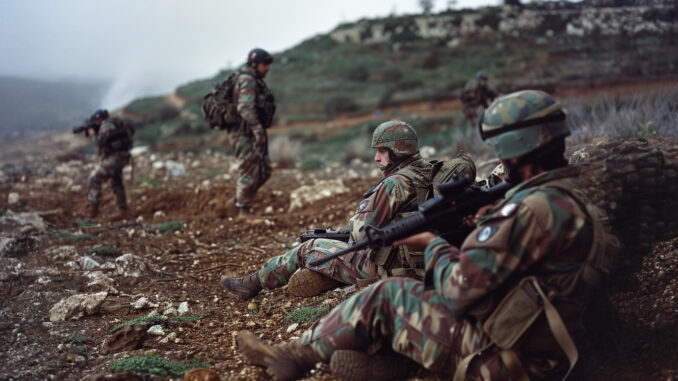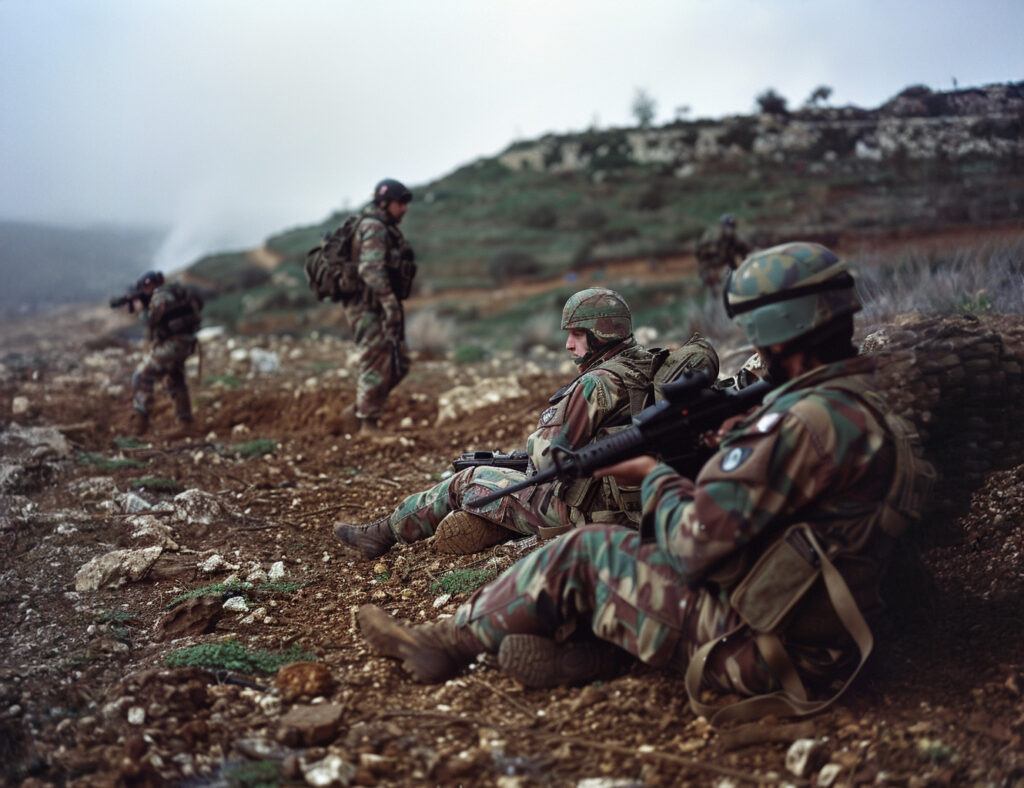
France is ready to support Lebanon in deploying its armed forces to the southern border, in response to growing tensions with Hezbollah and Israel.
France has expressed its support for the Lebanese Armed Forces (LAF) if Lebanon decides to deploy its troops to the southern border with Israel. This decision is aimed at strengthening Lebanese security and sovereignty in the face of growing tensions between Israel and the Iranian-backed Hezbollah. Discussions are underway for a possible international conference in Paris to mobilise contributions to support this mission. The situation remains complex, with significant logistical and political challenges, including Hezbollah’s reaction and the LAF’s limited resources since the 2019 financial crisis.
French support for the Lebanese Armed Forces
Strategic support against a backdrop of tension
France has pledged to support the Lebanese Armed Forces (LAF) if the Lebanese government decides to deploy its troops to the southern border with Israel. This initiative comes against a backdrop of heightened tensions between Israel and Hezbollah, an Iranian-backed Shiite militia operating freely in southern Lebanon. The deployment of the LAF could help stabilise the region by asserting the sovereignty of the Lebanese state and reducing the risk of direct conflict between Israel and Hezbollah.
French support includes the possibility of re-organising an international conference in Paris to mobilise resources for the LAF. This conference, originally scheduled for February, was cancelled. The aim would be to provide the equipment, training and infrastructure needed to strengthen the LAF’s capabilities in this delicate mission.
Geopolitical and logistical implications
The deployment of Lebanese troops to the southern border would represent a historic step forward, as the last such operation took place several decades ago. However, this initiative raises a number of logistical and political challenges. The main concern is the reaction of Hezbollah, which could either accept the deployment superficially to avoid open conflict with Israel, or react violently, leading to direct clashes with the LAF and endangering the UN forces in the region.
International coordination and support conference
France, in coordination with its international partners, plans to step up support for the LAF by various means. An international conference in Paris could be rescheduled to bring together security contributions, specifically targeting operations in southern Lebanon. The aim of this conference would be to mobilise resources for the equipment, training and infrastructure required by the LAF.
Discussions include coordination with other countries and capitals to develop a common strategy to support Lebanon. This international cooperation is crucial to ensure a coordinated and effective response to the security and political challenges posed by Hezbollah and the volatile situation on the southern border.

The Hezbollah challenge
Potential reactions and risks of conflict
Hezbollah remains the main obstacle to the successful deployment of the LAF on the southern border. This Shiite militia, which has a significant combat force, could react in one of two ways: accepting the deployment in order to achieve a ceasefire with Israel, or opposing it violently, leading to clashes with the LAF. In both cases, the presence of a non-state armed force backed by a foreign power considerably complicates the situation.
The leader of Hezbollah, Hasan Nasrallah, has recently stepped up his bellicose rhetoric, threatening to extend the conflict as far as the Mediterranean. This verbal escalation increases the risk of direct confrontation between the LAF and Hezbollah, and by extension, between the LAF and Israel.
Challenges for the Lebanese Armed Forces
Since the financial crisis of 2019, the LAF has been facing resource and manpower constraints. With a force of around 15,000 soldiers, it is uncertain whether the LAF can sustain a significant deployment to the south for complex security operations. This lack of resources is compounded by the need to maintain peace and security in other parts of the country.
International support, particularly from France, could alleviate some of these shortcomings by providing equipment, training and infrastructure. However, the situation remains precarious, and the success of such a deployment will largely depend on internal cooperation and political stability in Lebanon.
Outlook and recommendations
Modernisation and capacity building
To ensure the success of the LAF mission on the southern border, it is essential to invest in modernising and strengthening Lebanese military capabilities. This includes acquiring new equipment, implementing advanced training programmes and improving military infrastructure. International support, particularly from France and other partner countries, will be crucial to achieving these objectives.
International cooperation and peacekeeping
The complex situation on Lebanon’s southern border requires sustained international cooperation. France’s initiatives to organise an international conference and mobilise resources for the LAF are important steps in this direction. Collaboration with the United Nations and other international organisations is also essential to ensure a coordinated and effective response.
France’s support to the Lebanese Armed Forces for a security mission on the southern border is a strategic initiative aimed at strengthening Lebanon’s sovereignty and security. However, the success of this mission will depend on the ability to overcome the logistical, political and security challenges posed by Hezbollah and the volatile situation in the region. International cooperation and enhanced support will be essential to achieve these objectives and stabilise the situation on Lebanon’s southern border.
War Wings Daily is an independant magazine.